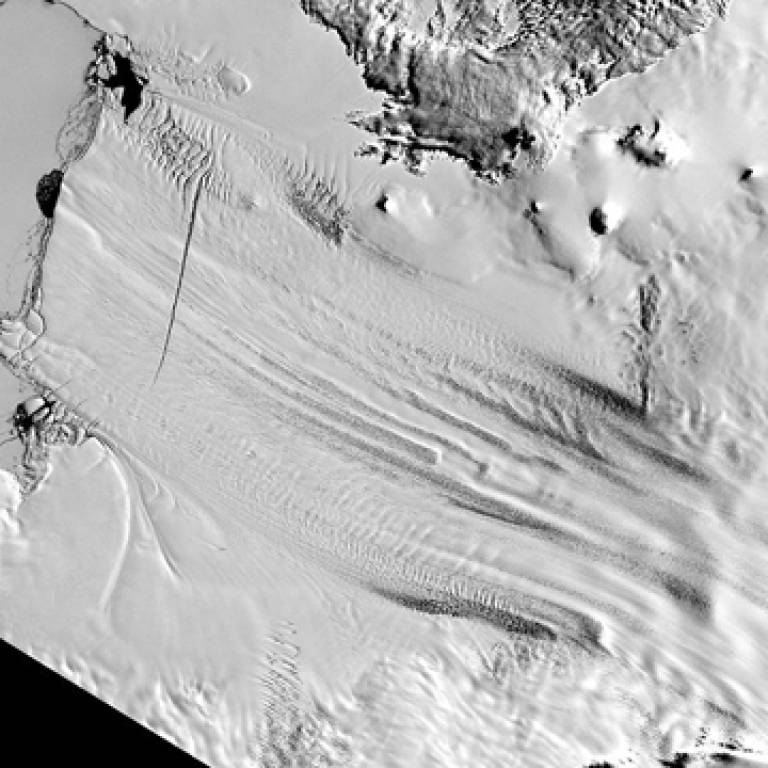Antarctic glacier thinning at alarming rate
14 August 2009
Links:
 bbc.co.uk/1/hi/sci/tech/8200680.stm" target="_self">Coverage on BBC News including video
bbc.co.uk/1/hi/sci/tech/8200680.stm" target="_self">Coverage on BBC News including videoThe thinning of a gigantic glacier in Antarctica is accelerating, according to a new study led by Professor Duncan Wingham (Head of UCL Earth Sciences).
The research, funded by the UK Natural Environment Research Council and published in the journal Geophysical Research Letters, shows that the Pine Island Glacier in West Antarctica is losing ice four times as fast as it was a decade years ago.
It also proves that ice is thinning is occurring further inland on the glacier, which is around twice the size of Scotland.
In the study, Professor Wingham explained: "The region of lightly grounded ice at the glacier terminus is extending upstream, and the changes inland are consistent with the effects of a prolonged disturbance to the ice flow, such as the effects of ocean-driven melting. If the acceleration continues at its present rate, the main trunk of the Pine Island Glacier will be afloat within 100 years, six times sooner than anticipated."
The region of the Pine Island Glacier affected today - 5,400 square kilometres - is large enough to affect the rate at which sea level rises around the world.
The glacier lies in the most inaccessible area of Antarctica - over 1,000 kilometres from the nearest research base. The scientists used continuous satellite measurements over the past 15 years to track the glacier's development.
Co-author Professor Andrew Shepherd from the University of Leeds said: "Being able to assemble a continuous record of measurements over the
past 15 years has provided us with the remarkable ability to identify
both subtle and dramatic changes in ice that were previously hidden."
Scientists believe that the retreat of glaciers in this sector of Antarctica is caused by warming of the surrounding oceans, though it is too early to link such a trend to global warming.
Image: The Pine Island Glacier ice shelf c.NASA
UCL context
The research conducted by UCL Earth Sciences spans a diverse range of activities including crustal processes, Earth and planetary evolution, mineral physics, palaeobiology and palaeoclimatology, polar observation and modelling, natural hazards, environmental geochemistry and sedimentology.
The department's teaching encompasses a wide range of undergraduate and taught graduate programmes together with an active body of graduate research students.
 Close
Close

